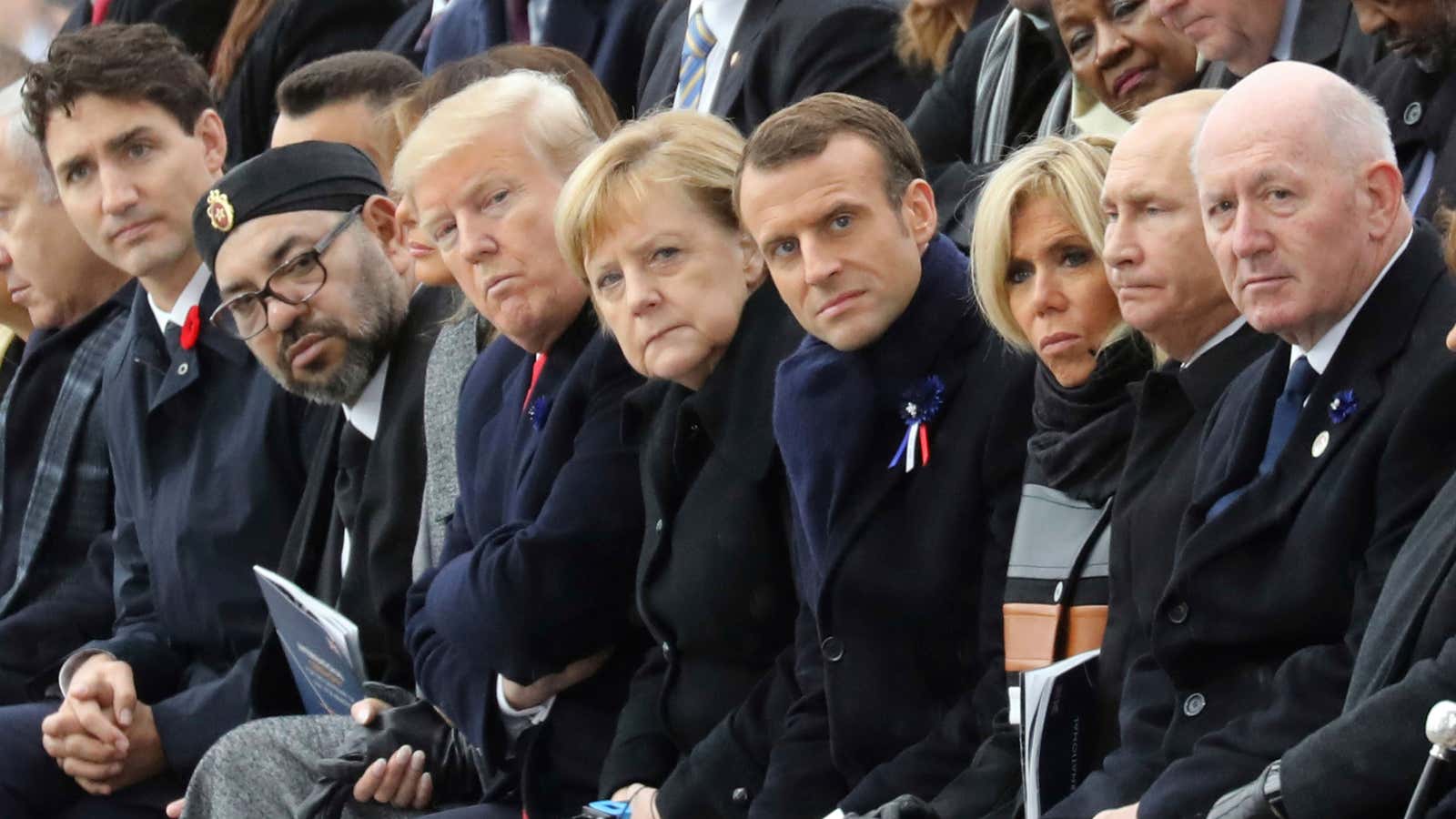Emmanuel Macron marked the 100th anniversary of the end of World War I, attended by dozens of world leaders, with a warning.
“Old demons are reawakening, ready to sow chaos and death,” the French president said. “History sometimes threatens to repeat its tragic patterns, and undermine the legacy of peace we thought we had sealed with the blood of our ancestors.”
Speaking on Armistice Day, 100 years after the end of World War I, Macron had pointed words for his counterparts Donald Trump and Vladimir Putin, who have each embraced nationalist policies and, in the case of Trump, explicitly embraced nationalism as a political identity.
“Patriotism is the exact opposite of nationalism: nationalism is a betrayal of patriotism,” Macron said. “By pursuing our own interests first, with no regard to others’, we erase the very thing that a nation holds most precious, that which gives it life and makes it great: its moral values.”
So what’s the difference between patriotism and nationalism? The former term is much older, with roots in the ancient Greek word patrios (“of one’s father”), and was first used in its modern context in the mid-1600s.
Nationalism, meanwhile, was first used in the late 18th century, and was initially interchangeable with patriotism. That changed in the 20th century, when it became associated with ethnic-supremacy movements in many countries, including Russia, the United States, India, and Myanmar.
At a political rally in October, Trump said:
A globalist is a person that wants the globe to do well, frankly, not caring about our country so much. And you know what? We can’t have that. You know, they have a word—it’s sort of became old-fashioned—it’s called a nationalist. And I say, really, we’re not supposed to use that word. You know what I am? I’m a nationalist, okay? I’m a nationalist. Nationalist. Nothing wrong. Use that word. Use that word.
Putin made a similar shift in 2014 (paywall), when he moved from using the word Rossisskii—which refers to Russian citizens and includes people who are ethnically Chechen, Tatar, or Ukrainian—to Russkii, which refers solely to someone who is ethnically Russian.
